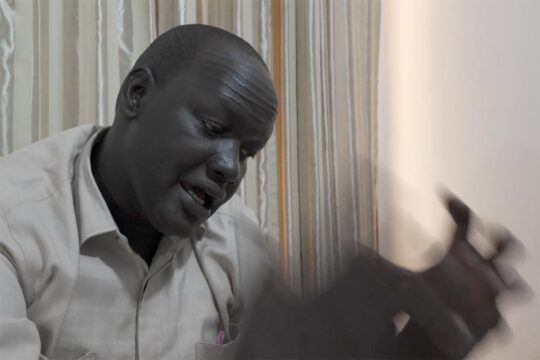South Sudan's devastating civil war has enriched senior officials directing the conflict, including the president and his main rival, a report charged Monday.
"Top officials ultimately responsible for mass atrocities in South Sudan have at the same time managed to accumulate fortunes, despite modest government salaries," said the report, commissioned by the Hollywood actor and activist George Clooney.
The brutal war -- which broke out in December 2013 when President Salva Kiir accused his former deputy Riek Machar of plotting a coup -- has claimed tens of thousands of lives and forced many times that number to flee their homes.
Almost half of the population rely on food assistance for survival and more than 800,000 South Sudanese have fled to neighbouring countries as refugees.
Countless villages have been burnt to the ground and human rights organisations say both government forces and Machar's rebel troops have frequently used rape as a weapon of war.
The report was produced by The Sentry, an organisation co-founded by Clooney which tracks the financing of conflicts in Africa.
It said that while political rivalry is often given as the primary cause of South Sudan's war, its "key catalyst" was actually "competition for the grand prize -- control over state assets and the country's abundant natural resources -- between rival kleptocratic networks led by" Kiir and Machar.
According to the report, entitled "War Crimes Shouldn't Pay", this form of "competitive corruption" has been a key characteristic of South Sudan's politics for more than a decade.
Both men, the report said, "benefit financially from the continuing war and have effectively ensured that there is no accountability for their human rights violations and financial crimes".
Top officials' families "often live in multi-million dollar mansions outside the country, stay in five-star hotels, reap the benefits of what appears to be a system of nepotism and shady corporate deals, and drive around in luxury cars -- all while much of their country's population suffers from the consequences of a brutal civil war, and in many places, experiences near-famine condition," the report said.
It added that individuals and major firms outside South Sudan had facilitated the deadly corruption.
The country's top officials "could not maintain the status quo without the system of international banks, businesses, arms brokers, real estate firms, and lawyers who, knowingly or unknowingly, facilitate the violent kleptocracy that South Sudan has become", it said.





